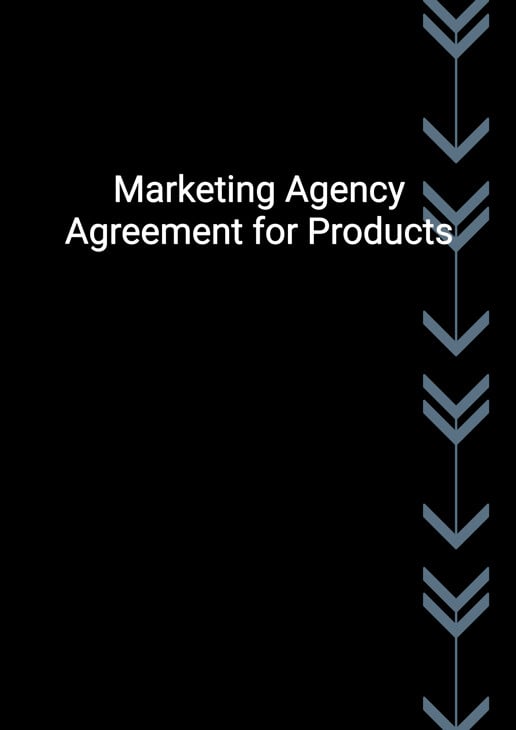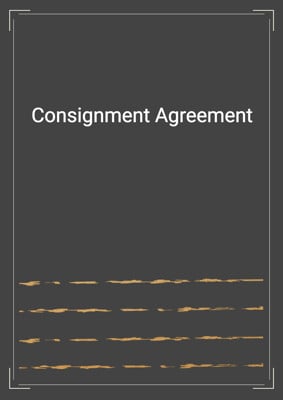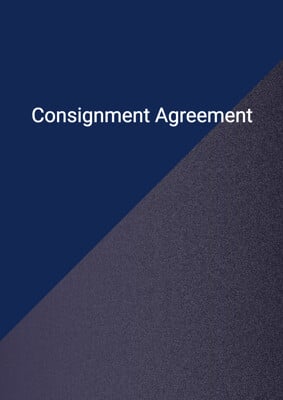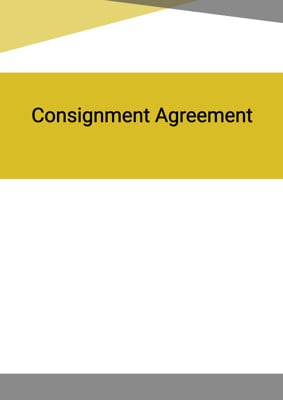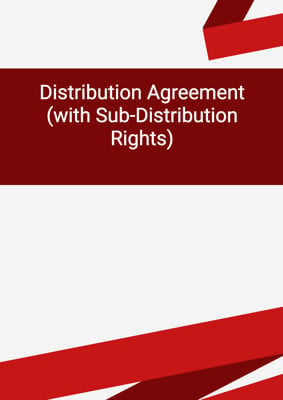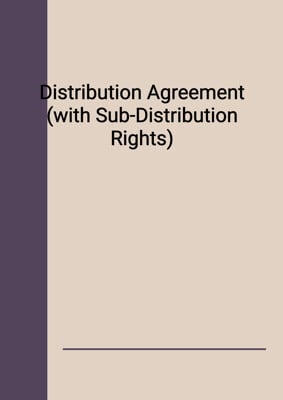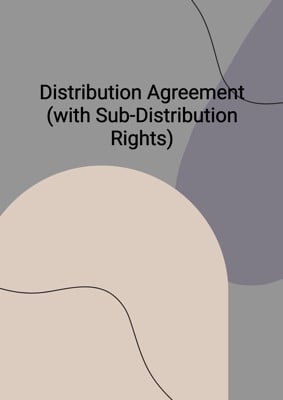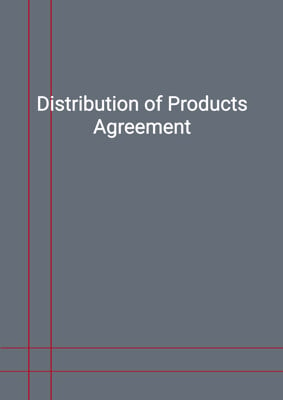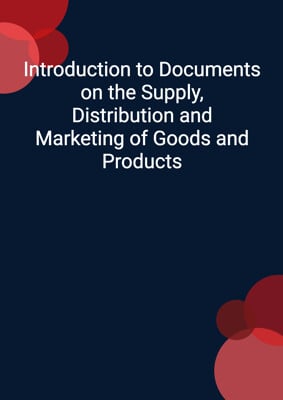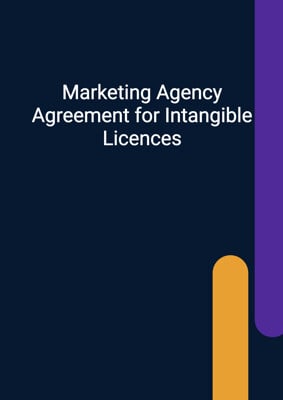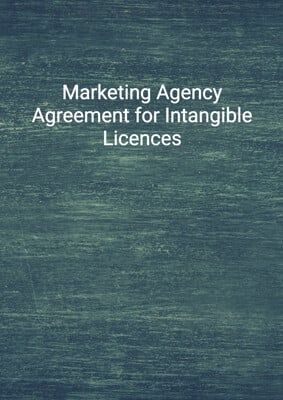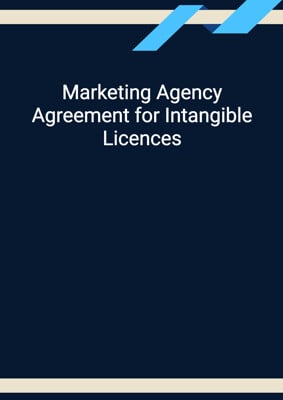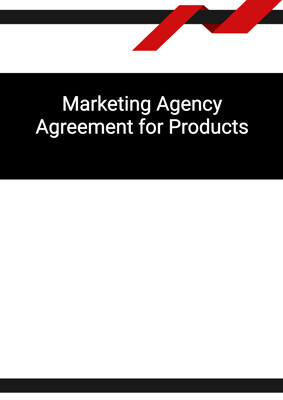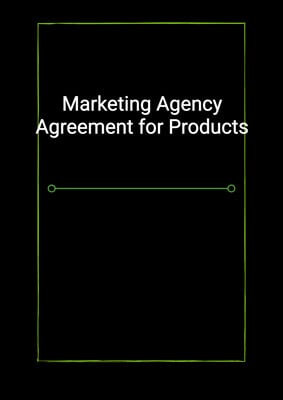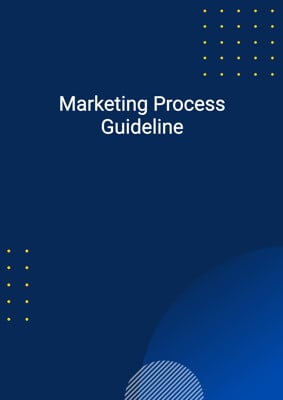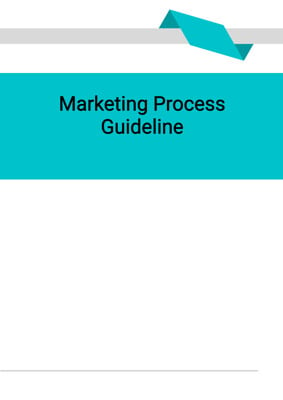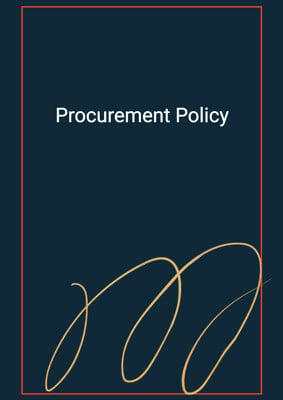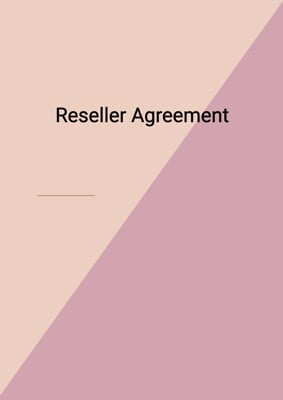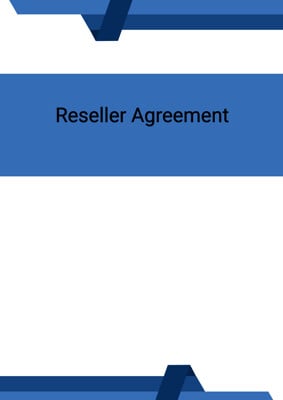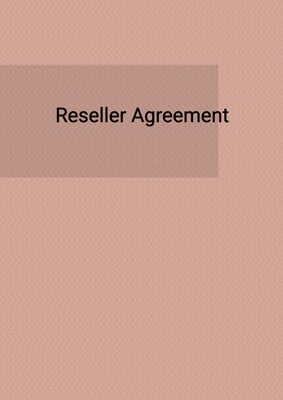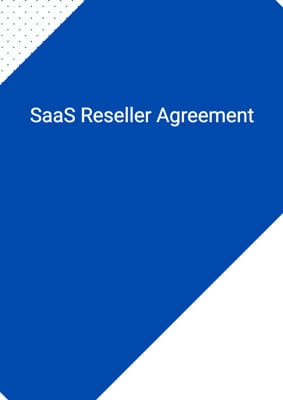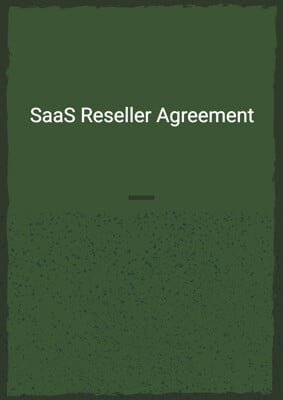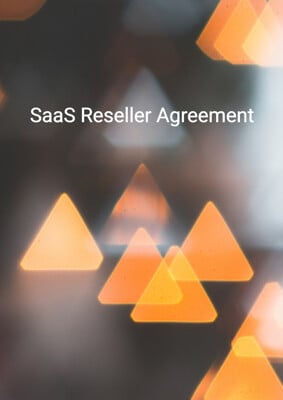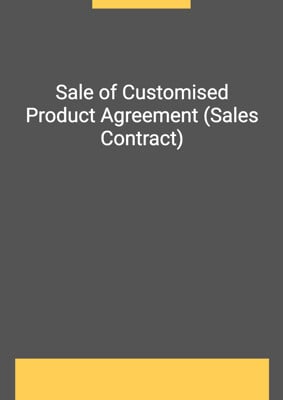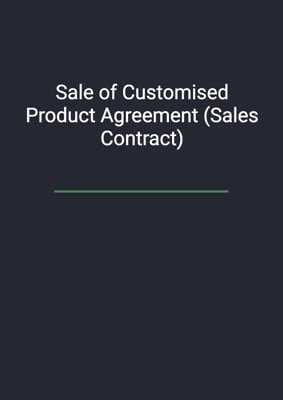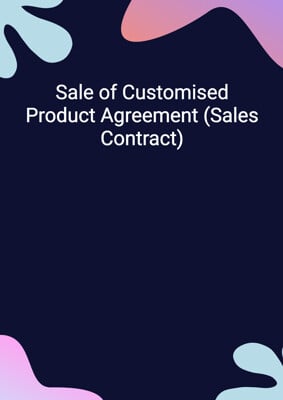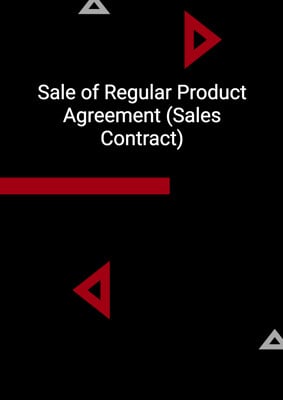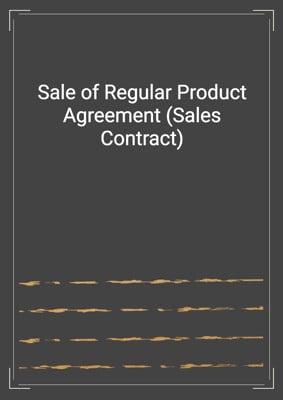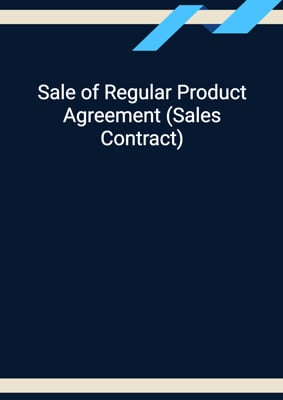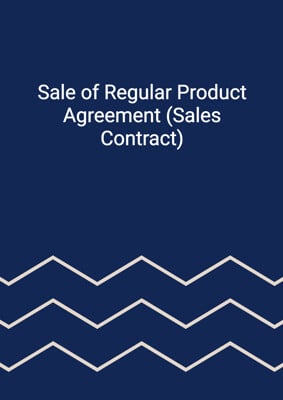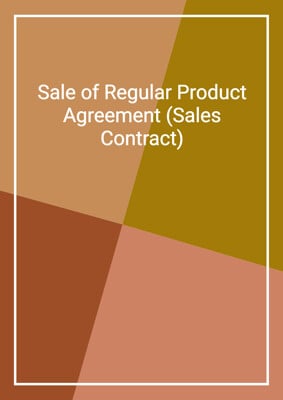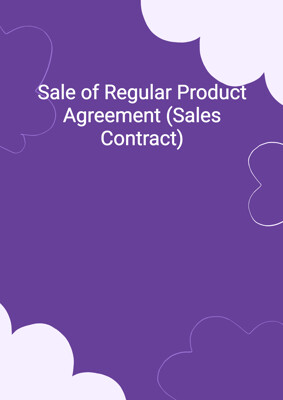How to Tailor the Document for Your Need?
01
Create Document
Fill in the details of the parties. You can click the "Fill with Member’s Information" button to complete it with information saved to your account.
02
Fill Information
Please fill in any additional information by following the step-by-step guide on the left hand side of the preview document and click the "Next" button.
03
Get Document
When you are done, click the "Get Document" button and you can download the document in Word or PDF format.
04
Review Document
Please get all parties to review the document carefully and make any final modifications to ensure that the details are correct before signing the document.
Document Preview
Document Description
The Marketing Agency Agreement for Products is a crucial document that outlines the terms and conditions between a marketing agency (referred to as the agent) and a manufacturing company (referred to as the principal). The agreement is designed to extend the sales area and marketing efforts of the principal to a specific territory where they have limited presence and experience.
The document begins with an introduction that highlights the purpose and importance of the agreement. It explains that the principal manufactures products and wishes to expand their sales to a specific territory. The agent, on the other hand, has extensive marketing experience in that territory and is willing to act as the marketing agent for the principal's products.
The agreement is divided into several sections, each addressing different aspects of the relationship between the principal and the agent. These sections include:
1. Interpretation: This section provides definitions for key terms used throughout the agreement, such as business day, force majeure, intellectual property, net invoice price, products, quarter, restricted information, territory, and year of this agreement.
2. Appointment of Agent: This section outlines the appointment of the agent by the principal as its agent in the territory. It specifies that the principal will not appoint any other person as its agent or distributor in the territory, except as agreed upon in writing.
3. The Agent's Duties: This section details the duties and responsibilities of the agent. It states that the agent will use its best endeavors to promote and market the products in the territory, seek orders for the products, and assist the principal in the sale of the products. However, the agent is not authorized to sell or enter into contracts on behalf of the principal without prior written authorization.
4. Sale of the Products: This section covers the terms and conditions of the sale of the products in the territory. It states that all sales will be made on the terms and conditions determined by the principal. The agent is required to bring these terms and conditions to the notice of customers and prospective customers.
5. Intellectual Property: This section addresses the intellectual property rights of the principal. It states that the agent must notify the principal of any actual or suspected infringement of the principal's intellectual property in the territory. The agent is also prohibited from using any trade names or trademarks that may cause confusion or deception.
6. Rights and Duties of the Principal: This section outlines the obligations of the principal, including the supply of samples, catalogues, and other marketing materials to the agent. The principal is also required to comply with applicable laws and regulations in the territory and inform the agent of any anticipated difficulties in production or supply.
7. Financial Provisions: This section covers the financial aspects of the agreement, including the commission payable to the agent based on the net invoice price of the products sold in the territory. The principal is required to provide regular statements and remittances to the agent.
8. Confidentiality: This section addresses the confidentiality of restricted information shared between the principal and the agent. The agent is obligated to keep all restricted information confidential and not to disclose it to any other person, except as necessary for the performance of their obligations under the agreement.
9. Force Majeure: This section deals with the impact of force majeure events on the performance of the agreement. It states that neither party shall be deemed in breach of the agreement if their performance is affected by circumstances beyond their control, and provides for discussions to alleviate the effects of such events.
10. Duration and Termination: This section specifies the duration of the agreement and the conditions for termination. It allows either party to terminate the agreement by giving written notice in accordance with the specified notice period. It also outlines the consequences of termination, including the return of samples and marketing materials.
11. Consequences of Termination: This section further details the actions to be taken upon termination of the agreement. It specifies that the agent must cease promoting, marketing, and soliciting customers for the products, and clarifies that the agent has no claim for compensation for loss of agency rights or goodwill.
12. Nature of Agreement: This section clarifies the nature of the agreement and sets out the entire agreement between the parties. It states that neither party has relied on any representations or warranties not expressly set out in the agreement, and excludes liability for misrepresentation.
13. No Rights under Contracts for Third Parties: This section confirms that the agreement does not confer any rights on third parties to enforce its terms.
14. Arbitration and Proper Law: This section provides for arbitration in case of disputes and specifies the proper law governing the agreement.
15. Notices and Service: This section outlines the requirements for giving notices under the agreement, including the methods of service and the addresses of the parties.
The Marketing Agency Agreement for Products is a comprehensive document that covers all aspects of the relationship between the principal and the agent. It ensures clarity and protection for both parties and establishes a framework for successful marketing and sales activities in the specified territory.
How to use this document?
To use the Marketing Agency Agreement for Products effectively, follow these steps:
1. Familiarize yourself with the entire agreement: Read the agreement carefully to understand its purpose, terms, and conditions. Pay attention to the definitions provided in the interpretation section.
2. Understand your role as the agent: Review the section on the agent's duties to understand your responsibilities. Note that you are responsible for promoting and marketing the products in the territory, seeking orders, and assisting the principal in sales.
3. Comply with the terms of sale: Ensure that you understand and adhere to the terms and conditions of the sale of the products. Familiarize yourself with the pricing, payment, and delivery terms specified by the principal.
4. Protect the principal's intellectual property: Be vigilant in identifying and reporting any actual or suspected infringement of the principal's intellectual property in the territory. Avoid using trade names or trademarks that may cause confusion or deception.
5. Maintain confidentiality: Keep all restricted information shared by the principal confidential. Do not disclose it to any other person unless necessary for the performance of your obligations under the agreement.
6. Keep accurate records: Maintain a list of customers and potential customers for the products in the territory. Keep track of all inquiries, orders, and complaints related to the products.
7. Communicate with the principal: Keep the principal informed of your promotional and marketing activities, market conditions, and any changes in laws or regulations that may affect the products.
8. Comply with financial provisions: Ensure that you understand the commission structure and the process for receiving commission payments. Keep accurate records of sales and promptly notify the principal of any changes or discrepancies.
9. Adhere to termination procedures: If you decide to terminate the agreement, follow the specified notice period and return any samples and marketing materials to the principal. Cease all promotional and marketing activities for the products.
10. Seek legal advice if needed: If you have any questions or concerns about the agreement or its implications, consult with a legal professional to ensure that you fully understand your rights and obligations.
By following these steps, you can effectively use the Marketing Agency Agreement for Products and establish a successful partnership with the principal.
Not the right document?
Don’t worry, we have thousands of documents for you to choose from:
